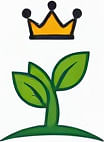Cultivating Personal Growth with Self-Reflection Exercises
 by Thaddeus Blanda
by Thaddeus Blanda
Self-reflection exercises offer a practical path to deeper self-awareness and improved decision-making for entrepreneurs. By integrating simple routines, ambitious professionals can foster innovation and resilience in their business pursuits, leading to sustained personal and career advancement.

Self-reflection exercises form a core part of building stronger personal habits and strategies for those aiming to excel in business and life. These practices help individuals pause and assess their progress, making them essential for growth-minded people.
One effective exercise involves daily journaling. This routine allows you to document thoughts and experiences, revealing patterns that influence your decisions. For entrepreneurs, journaling can uncover insights into challenges faced in business operations.
Another valuable approach is meditation. Through quiet contemplation, you gain clarity on goals and motivations. This method supports self-improvement by reducing stress and enhancing focus, which is vital when managing entrepreneurial demands.
Consider incorporating feedback reviews into your routine. This involves regularly seeking input from peers or mentors and analyzing it objectively. For instance, after a project, note what worked well and what did not, turning experiences into learning opportunities. Such exercises build resilience and refine business strategies over time.
Benefits of Regular Practice
Engaging in self-reflection exercises consistently yields noticeable advantages. First, they improve self-awareness, helping you recognize strengths and areas for development. In entrepreneurship, this means making better choices that align with your vision.
These practices also enhance problem-solving skills. By reflecting on past actions, you can avoid repeating mistakes and innovate new approaches. For growth-minded individuals, this leads to more effective planning and execution in professional endeavors.
Moreover, self-reflection fosters emotional balance. It encourages a mindset that views setbacks as temporary, promoting perseverance. Entrepreneurs who adopt this often find themselves more adaptable in dynamic markets.
Practical Steps to Get Started
To begin, set aside dedicated time each day for reflection. Early mornings or evenings work best for many. Start with just 10-15 minutes to maintain consistency without overwhelming your schedule.
For journaling, use a simple notebook or digital app. Write about your day's key events, emotions, and lessons learned. Over time, review entries to track personal growth.
In meditation, find a quiet space and focus on your breath. Allow thoughts to come and go without judgment. This practice sharpens mental clarity, aiding in strategic business decisions.
Feedback reviews can be structured. After meetings or projects, list specific feedback received and your responses to it. This exercise helps in building stronger networks and refining skills.
Real-World Applications
Many successful entrepreneurs attribute part of their achievements to regular self-reflection. For example, analyzing failures through structured exercises has led to pivotal pivots in business models. By applying these methods, you can turn everyday experiences into actionable insights.
In team settings, self-reflection extends to group dynamics. Encourage team members to share reflections, fostering a culture of continuous improvement. This not only boosts individual performance but also strengthens overall business outcomes.
As you integrate these exercises, notice how they influence your confidence and decision-making. The key is persistence; even small, daily efforts compound into significant changes.
Overcoming Common Challenges
At times, maintaining these routines may feel difficult amid busy schedules. To counter this, treat self-reflection as a non-negotiable part of your day, similar to exercise or meals. Start with easier exercises and gradually build up.
If distractions arise, create a dedicated environment free from interruptions. Over time, the habit will become second nature, providing ongoing benefits for self-improvement and entrepreneurial success.
In conclusion, self-reflection exercises serve as a foundation for lasting personal and professional development. By committing to these practices, ambitious professionals can achieve greater clarity, resilience, and innovation in their pursuits.
